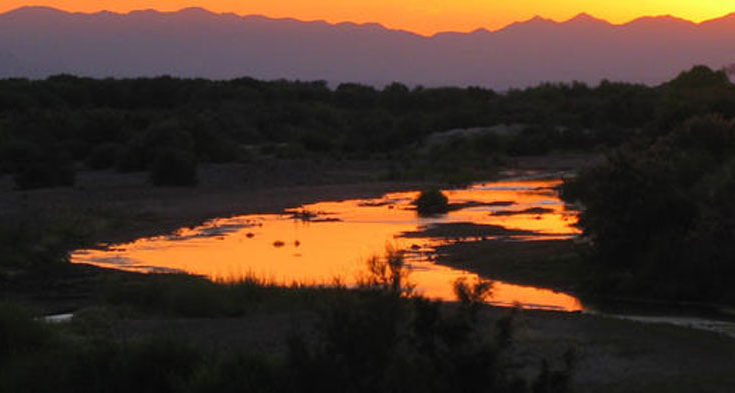By Sean Lewis and Justin Layton
GRAHAM COUNTY – Water is the basic building block of all life in the Gila Valley and Southeastern Arizona.
But the water we need is at-risk. Attorneys for the San Carlos Apache Indian Tribe have filed suit against farmers in our community. The target: groundwater wells, including wells that have been used for decades to irrigate crops.
But this isn’t just an agricultural issue.
If the tribal lawsuit is successful, it may set a precedent that threatens groundwater relied upon both in town and on the farm. In Safford alone, wells provide an estimated 60% of the water supply for residents during the dry summer months. Our regional economy would suffer also, with approximately 30,000 acres of productive farmland threatened. There’s no way to calculate the ripple effects if this land – the source of 20% of all cotton grown in Arizona – goes dry. Both tribal and non-tribal residents would suffer.
First, a little background. Tribal and agricultural interests in our region have been fighting in the courts over water for decades. In 2004, it looked like the water wars would finally end when local irrigation districts, farmers and others reached a settlement with the Gila River Indian Community. Unfortunately, the San Carlos Apache Tribe, which had participated in those negotiations, didn’t sign the agreement.
Now, attorneys for the San Carlos Apache Tribe are suing well users in our region, arguing that – rather than groundwater – the pumps are actually drawing from “sub-surface flow” that is part of the tribe’s Gila River allotment. Well-users deny these claims on both legal and factual grounds. The bottom line: lots of money is being spent in the courtroom on a fight that, even if the tribe wins, will only devastate the local economy and won’t result in a single drop of additional water being delivered to the San Carlos Apache Tribe.
There’s another way.

The 2004 settlement provided a pot of federal dollars to resolve any lingering water concerns for the San Carlos Apache Tribe. The result is the Emery Pipeline, built to transport 10,000 gallons per minute of clean, fresh, water to the Tribe. The pipeline is operational at the touch of a button, but it currently stops at the edge of the reservation – unused, because the Tribe will not respond to requests to discuss extending the pipeline onto the reservation.
Keep in mind that it’s not uncommon for residential taps in Bylas to run dry this time of year. During each of the previous two summers, the San Carlos Apache Tribe requested help from the town of Pima – and the community responded by delivering truckloads of water to tribal residents at no charge.
Imagine if the Emery Pipeline was completed so it could fulfill its mission to transport 6,000 acre-feet of water per year for the tribe to use any way it sees fit, including making water shortages in Bylas a thing of the past. Imagine if we could all stop spending so much money in court and start working together.
We respectfully ask that San Carlos Apache tribal leaders take another look at the Emery Pipeline and a water solution that will benefit everyone in this corner of the state we all share.
Sean Lewis is the Pima Town Manager and moved to the Gila Valley in 2000. Justin Layton is a 4th generation Gila Valley cotton farmer.







